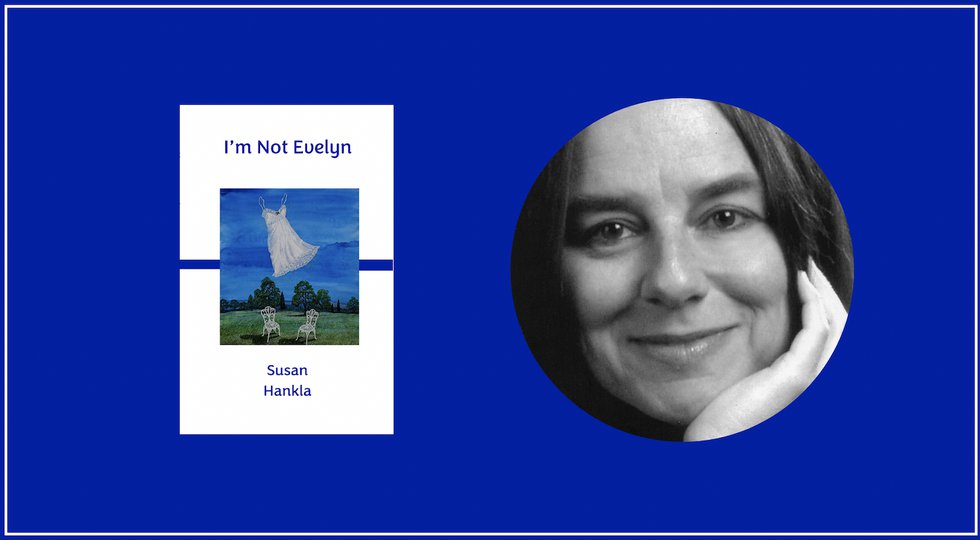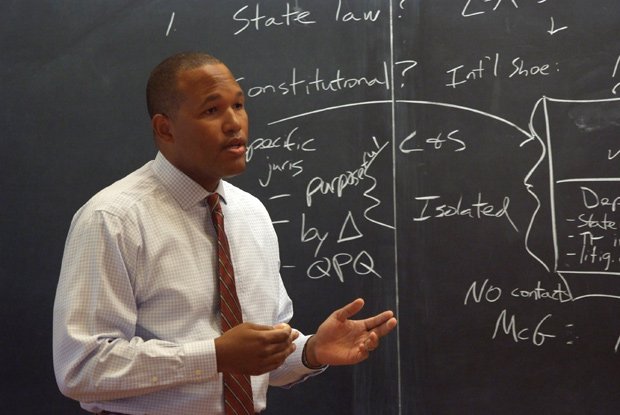Droll and wise, these poems show a girl learning the mysteries of her family.

I’m Not Evelyn by Susan Hankla. Groundhog Poetry Press. pp.71. $18.
Tricia Pearsall: Clinch River appeared to undress individual characters and culture in Appalachia, whereas this book, I’m Not Evelyn, seems like a bracing, eccentric family romp, a homage to growing up. How did you conceive this?
Susan Hanka: I wrote the entire book one Easter Sunday. It wasn’t a book then, but something possessed me. So, it’s a cohesive piece, but each untitled poem is individual. Organizing it was difficult. It covers childhood moments, adolescent moments, and times in college. So, it involves a part of my life where horrible things sorta happen to family members—as in Edward Gorey’s The Gashlycrumb Tinies. Legendary stories like a woman getting thrown out of a car, her rings flying off.
And where does the title, I’m Not Evelyn, come from?
My aunt’s husband called me Evelyn when I was 5 years old. I don’t know why. I know it was the name of his dead first wife—though nobody knew who she was, never even saw a picture of her or anything. He married my Aunt Ruth when she was 60. And because I wasn’t so close to her, I wrote about her quite a bit. It was easier, and she was interesting, in a funny way.
What made you want to be a writer?
When I went to North Cross for high school in Roanoke, my mentor and teacher, Valerie Nash, was a published poet. She took me under her wing. Before North Cross, I’d planned to be a studio artist and go to art school. That changed, and soon it was all about writing. I would sit in on Valerie’s workshops, which were in her house, and I just copied everything she did.
What’s your writing process?
It’s a byproduct of reading. Just before the vision for I’m Not Evelyn, I’d been reading some poems by Cynthia Cruz, and the descriptions of clothes in them were so rich and full of detail, it just set me off. I just found inspiration there. Really, my process is very mysterious, even to myself. I just jot things down all the time. I’ve got jottings on thousands of pieces of paper and every now and then, I gather them all up and copy them into a notebook, just to have them, ‘cause they’re like holograms.
You’ve been a poetry and writing teacher for years. What inspires you to teach?
When I was in graduate school at Brown University, I started doing Poets-in-the-Schools in Providence, Rhode Island. I liked working with the kids, and I guess that started me on the path. But you couldn’t possibly do that curriculum every day. It’s very rigorous and stressful, four classes a day, but I loved it.
When I came back to Virginia, I started teaching with Poets-in-the-Schools in the ’70s, an extremely well-funded program by the Virginia Commission for the Arts. Most of those programs are gone, but back then it was like total action against poverty. It was called Project Reinforce in Southampton County, where we taught mostly African-American kids—white-flight and all.
You hail from Richlands in Tazewell County. Lee Smith is from Grundy, just up the road. Why do so many good writers emerge from this part of Virginia?
I think the answer besides isolation which is solidly linked to insolation is the feeling of being an outsider. Isolation not only gives you a chance to write but produces a culture of stories. There’s this great PBS special about writer Fred Chappell: “I am one of you forever.” It’s an amazing piece about not just him but about being from Appalachia in general.
When we were in school in Richlands, we had to write. We had to memorize poems and recite them. I wrote a lot for school, and got the poetry award in 8th grade.
And your favorite Virginia writers?
Besides Lee Smith, Tom Robbins for his imagination. I like his whole writing trajectory—the permissiveness of it, especially Jitterbug Perfume. And Tom Wolfe, of course, for his social satires. He wrote a really great essay explaining what a redneck is. I need to go back and reread that.
Bio:
I’m Not Evelyn is Susan Hankla’s second book from Groundhog Poetry Press, LLC. Recipient of the Virginia Prize for Fiction, fellowships to the Virginia Center for the Creative Arts, and the Frost Place, she holds a BA from Hollins College and an MFA in creative writing from Brown University.
Clinch River, her debut poetry collection is available through Amazon and Small Press Distribution. Burning Deck Press published her chapbook, I Am Running Home, and other works have been published in Beloit Fiction Journal, Michigan Quarterly Review, Southern Poetry Review, Poetry Northwest, and the New Virginia Review.
For many years Susan worked as a traveling poet and teacher through The Virginia Commission of the Arts’ Poets-in-the-Schools program. She then taught adult writing classes at the Visual Arts Center in Richmond and the Virginia Museum of Fine Arts’ Studio School. Susan lives in Richmond, VA, and now teaches privately.









